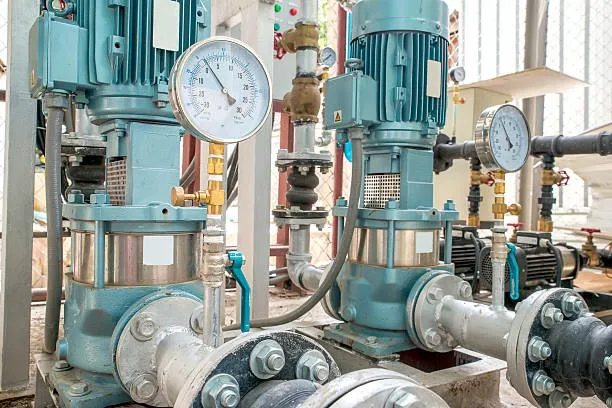
Why seasonal boiler maintenance matters in Fawn Grove
Fawn Grove experiences freezing temperatures, snow, and seasonal humidity shifts that strain heating systems. Many homes here use hydronic boilers—often older models—so sediment, scale, and corroded components are common problems. In households served by well water, mineral buildup on burners and heat exchangers can reduce efficiency faster than in municipal-water areas. Regular maintenance addresses these local wear factors so your boiler delivers consistent heat while using less fuel.
Common boiler problems in Fawn Grove homes
- Inefficient heating and rising energy bills due to soot, scale, or poor combustion
- Uneven heat or cold spots from trapped air or clogged radiators/zone valves
- Frequent cycling or short runs caused by incorrect pressure or poor thermostat calibration
- Leaks, corroded piping, or failing seals from freeze/thaw cycles and age
- Safety device failures (pressure relief valves, low-water cutoffs, venting) that risk damage or hazards
- Ignition issues, yellow flames, or soot buildup indicating combustion problems
What a professional boiler maintenance visit includes
A thorough maintenance visit goes beyond a quick visual check. Typical tasks performed during a professional boiler tune-up include:
- Scheduled inspection and system assessment
- Visual check of the boiler, connected piping, radiators/convectors, and flue/venting
- Review of service history and any manufacturer-recommended requirements
- Cleaning burners and heat exchanger
- Remove soot and scale from burners and heat exchanger surfaces to restore efficient combustion and heat transfer
- Inspect and clean pilot assembly or electronic ignition components
- Pressure and safety valve checks
- Test system pressure and adjust as needed
- Inspect and exercise the pressure relief valve and other safety devices to ensure proper operation
- Control, thermostat, and sequencing calibration
- Verify thermostat accuracy and program settings
- Check boiler controls, aquastats, and zone valves for correct sequencing and responsiveness
- Efficiency tune-up and combustion optimization
- Adjust air-to-fuel ratio and test combustion to improve fuel efficiency and reduce soot
- Check for correct flame color and stability; test for carbon monoxide risks
- Circulator pump and expansion tank checks
- Lubricate and inspect pumps where applicable; verify proper flow
- Inspect expansion tank for proper charge and isolation to avoid pressure problems
- Leak inspection and pipework assessment
- Check fittings, seals, and visible connections for leaks or corrosion
- Evaluate piping insulation and recommend upgrades where heat loss is high
- System flushing and chemical treatment (as needed)
- Recommend or perform flushing to remove sediment and sludge that reduce heat transfer
- Suggest appropriate corrosion inhibitors or water treatment for homes with hard or well water
- Condensate and venting system check (for condensing boilers)
- Verify condensate drain integrity and clear any blockages
- Inspect flue and vent terminations for obstructions or damage
- Documentation and performance report
- Provide a summary of findings, actions taken, and recommended next steps or repairs
Signs you need service now
If you notice any of the following, schedule service before a minor issue becomes a major repair:
- Sudden increase in heating bills with no change in use
- Strange banging, gurgling, or kettling noises from pipes or boiler
- Inconsistent or insufficient heat in parts of your home
- Visible water leaks, wet spots, or rust around the boiler
- Soot, a yellow pilot flame, or a persistent burning smell
- Frequent short cycling or difficulty maintaining set temperatures
Recommended maintenance frequency
- Annual comprehensive inspection and tune-up: Minimum recommendation for most residential boilers. Best scheduled in early fall before heavy winter use.
- Twice-yearly service: Advised for older systems (10+ years), high-use households, or systems with known issues. A spring check can catch problems created during winter and prepare the system for the off-season.
- Ongoing checks: Homeowners should visually inspect the boiler area monthly for leaks, unusual noises, or warning lights.
Benefits of regular boiler maintenance
- Improved reliability: Preventative service reduces the likelihood of emergency breakdowns in cold weather.
- Lower energy bills: Clean burners and calibrated controls restore efficient combustion and heat transfer.
- Longer equipment life: Routine cleaning, lubrication, and component checks reduce wear that leads to premature failure.
- Enhanced safety: Testing safety valves, controls, and combustion reduces risks of leaks, overpressure, or carbon monoxide exposure.
- Warranty compliance: Many manufacturers require documented annual maintenance to keep warranties valid.
- Better indoor comfort: Properly tuned systems deliver consistent temperatures and quieter operation.
Maintenance plans and what they typically include
Maintenance plans provide predictable, scheduled care to keep boilers operating at peak performance. Typical plan features tailored for Fawn Grove homes include:
- Scheduled annual or biannual visits timed for fall and/or spring
- Priority scheduling during peak heating season
- Routine filter and small-parts checks or replacements
- Discounted labor or parts for covered repairs
- Seasonal tune-ups: burner and heat exchanger cleaning, pressure/safety checks, control calibration
- Written service reports to document maintenance for warranties or resale
Plans vary by coverage level; many homeowners choose a two-visit option to catch winter wear and post-season issues. For properties with older boilers, wells, or heavy use, higher-frequency plans add extra protection and peace of mind.
Practical homeowner maintenance tips
- Schedule professional service before the heating season begins to avoid delays and breakdowns.
- Keep the area around the boiler clear of clutter and flammable materials.
- Check boiler pressure monthly and report any significant drops or spikes.
- Bleed radiators or zone units if you notice cold spots to restore circulation.
- Watch for increases in fuel bills that are not explained by colder weather—this can signal inefficiency.
Regular, professional boiler maintenance is the best way to protect comfort, safety, and budget through Fawn Grove’s winters. Well-documented tune-ups and a suitable maintenance plan tailored to your boiler type and home conditions help you avoid emergency repairs and keep your system working efficiently for years.


Enjoy flexible financing options that make upgrading or repairing your HVAC system easy and budget-friendly.










